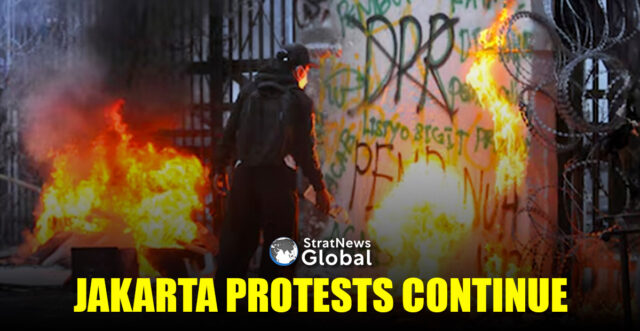Indonesian students announced plans to protest at Jakarta’s parliament on Thursday, as a scheduled government meeting regarding deadly demonstrations, which have killed 10, has yet to take place.
Led by students, workers and rights groups, last week’s protests over police violence and state spending priorities spread across the world’s third-largest democracy after a police vehicle hit and killed a motorcycle taxi driver.
The demonstrations have at times turned violent. Rights groups said 10 people have died and over 1,000 people were injured in incidents of looting and rioting. Rights groups have condemned the use of force by security forces.
The coalition of student bodies, known locally as BEM SI, said ahead of Thursday’s protest that “the people’s anxiety isn’t due to protests on the street, but it’s due to corruption and the politicisation of the law.”
Students Demand Independent Probe
Ten student unions met with parliamentarians on Wednesday. They called for an independent investigation into police violence, while drawing a contrast between generous benefits for lawmakers and the economic hardship faced by most Indonesians.
The deputy house speaker offered them a chance to meet with the government on Thursday, but BEM SI leader Muzammil Ihsan said there had been no follow-up on the invitation.
The protests have been called for by several Indonesian student bodies with varying and at times unaligned interests.
Workers with the union Gebrak will also stage a demonstration in Jakarta on Thursday against the heavy-handed security response and demand the release of those detained.
Indonesian authorities have detained over 3,000 people in a nationwide crackdown, New York-based rights group Human Rights Watch said on Thursday.
“Indonesian authorities should not respond to protests over government policies by using excessive force and wrongfully locking up demonstrators,” said Meenakshi Ganguly, deputy Asia director of the group.
President Prabowo Subianto has said the military and police would stand firm against violent mobs, and that some of the unrest bore the signs of terrorism and treason.
(With inputs from Reuters)





